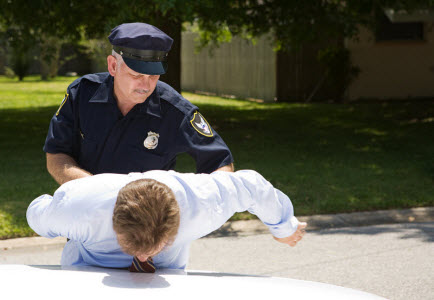Fleeing and Eluding, not just a misdemeanor anymore
The Florida statute on Fleeing and Eluding explained The criminal charge of fleeing and eluding is a serious criminal offense with serious penalties.

Several years ago the misdemeanor version of fleeing and eluding was eliminated and any charge of fleeing and eluding under Florida law is a felony. It is unlawful for the operator of a vehicle who knows that he or she has been ordered to stop his or her vehicle by a law enforcement officer to willfully refuse to stop the vehiclein compliance with the order. Florida statute 316.1935. If a person has stopped and then willfully tries to flee or attempt to elude an officer it is also a violation of the statute. This is a third-degree felony which carries up to five years imprisonment as a punishment. Any person who willfully flees or attempts to elude a law enforcement officer who is in a marked patrol vehicle and has siren and lights activated is guilty of a higher degree felony under certain circumstances. If that person drives at high-speed or a manner which demonstrates a wanton disregard for the safety of people or property is a felony of the second degree punishable by up to 15 years in state prison. If by driving in that manner or at a high-speed the person causes serious bodily injury or death to another person the charge becomes a first degree felony punishable by up to 30 years in prison. In that case, there is a minimum mandatory prison sentence of at least three years. If a person has been in an accident and while leaving that accident willfully refuses to stop when ordered to by a law enforcement officer, and during that time causes injury to another person or damage to property, it becomes a felony of the second degree. If serious bodily injury is actually caused it becomes an aggravated fleeing and eluding which is a first degree felony. Aggravated fleeing and eluding carries a minimum sentence of three years in prison. Drivers license suspension The statute requires the court to revoke a person’s drivers license for a minimum of one-year, up to five years, for a conviction of fleeing and eluding. The fleeing and eluding statute requires that a person be adjudicated guilty, therefore, becoming a convicted felon. The court may not withhold adjudication as a judge may do on other types of felonies. Further, a persons vehicle may be subject to being forfeited as contraband under the statute. There may also be a fine assessed of up to $5000.00. Because of the nature of the statute and the severe punishments, the goal of an experienced defense attorney is to normally to try to get charges dropped or have them reduced to a less serious offense, such as a misdemeanor or other alternate charge. Talking with an experienced fleeing and eluding defense attorney, who has experience with this type charge and in working with a state attorney’s office, is essential for someone who has been charged under this statute. An experienced criminal defense attorney will be able to investigate the individual circumstances of your case and get the best possible result for you. Sandefer law firm is experienced in the defense of fleeing and eluding charges. We will work aggressively, and thoroughly, to help you achieve the best possible result in your case.
